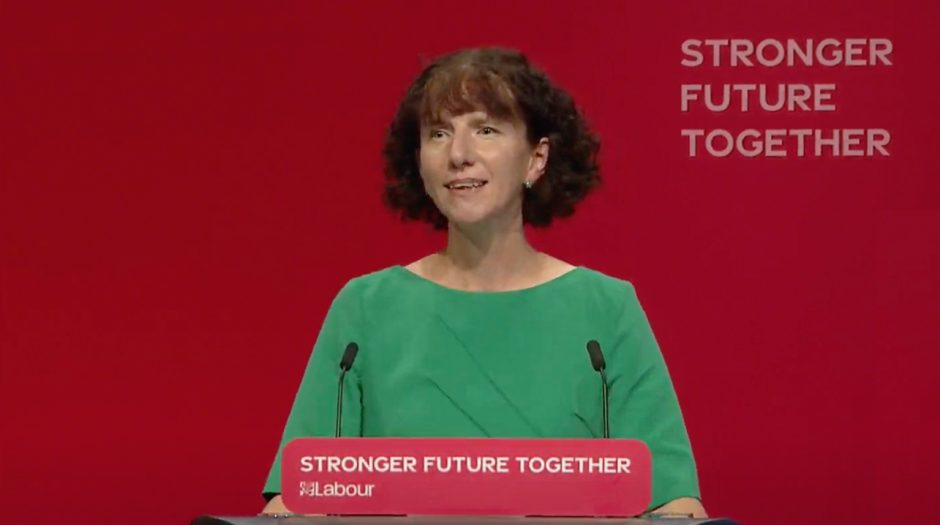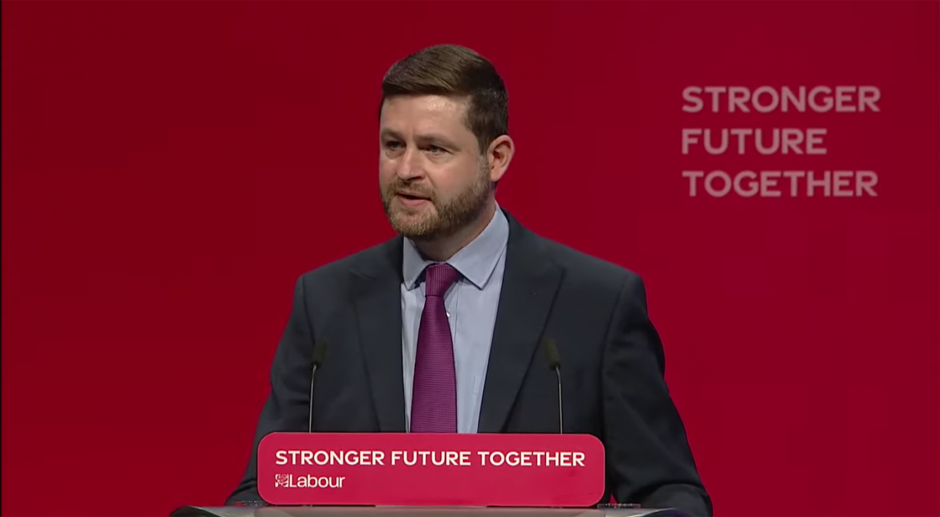There was a significant co-operative presence at the 2021 Labour Party Conference in September, with key Labour/Co-op MPs delivering speeches throughout the event.
Labour/Co-op MP Preet Kaur Gill spoke on the opening day, presenting greetings on behalf of the Co-operative Party, which has been a sister party to Labour since 1927.
“Like all successful relationships, our partnership has endured because of shared values and goals,” said Ms Gill. “Today, [the Co-op Party] shares over 1,000 elected representatives with the Labour Party, with tens of thousands of members and supporters. We are growing fast, with huge ambitions for our movement and the communities we serve.”
Her inspiration to get into politics was her father, the late Daljit Singh Shergill, who came to Birmingham in the 1950s, where he worked in the Foundry and as a bus driver before becoming the president of the first Gurdwara in Smethwick. Growing up in recession-hit Birmingham in the 1980s, Ms Gill said she witnessed the power of community first-hand.
“I saw how my father unionised the ethnic minority workers at his factory, to stop them from having their pay packets stolen by other workers. I watched him set up the first domestic abuse service of its kind, and establish the first food bank in Smethwick. Our home became a one-stop shop for anyone who needed support … Building resilience and power in our communities is what my father did and is what we, as co-operators, do, day in day out.”
Ms Gill, who represents Birmingham Edgbaston, is the first female Sikh MP. She is shadow secretary for international development and chairs the Co-op Party Parliamentary Group.
In her speech, she described the “rich and beautiful history” of the co-operative movement, highlighting the breadth and scope of the three million co-ops worldwide.
“The beauty of the co-op model is simple,” she told delegates. “By existing to provide a service for their members rather than generate profits for shareholders, co-operative and mutual enterprises realise the ideal of a fairer and more inclusive economy that devolves power to people and puts their needs at its heart …
“At a time when more than half of UK company equity is owned abroad and only just over 12% by individuals, the co-operative model offers something different.”
She added: “The Co-op Party has stood shoulder to shoulder with the Labour Party in the fight for fairness and equality, and while we are proud of our different traditions, we are clear about our shared ambitions.”
These ambitions include tackling modern slavery, fighting for food justice, securing legal protections for shopworkers (which has been achieved in Scotland) and fighting against cuts to overseas aid.
“Politics is about choices, and the Conservatives have shown whose side they are on,” Ms Gill added. “But as [Co-op Party] general secretary Joe Fortune has said, at times of crisis this past 18 months, the British people responded not with division, but with co-operation.
“Soon we will celebrate a hundred years of partnership with the Labour Party. We are determined to celebrate that milestone during the first term of a Labour and Co-operative government under Keir Starmer. We look forward to working together to achieve that aim.”

Labour/Co-op MP Anneliese Dodds, who is Labour Party chair and the former shadow chancellor, spoke of how the previous 18 months had exposed “just how unequal and unfair” the UK had become but added that the crisis also “showed what the British people achieve when we come together”.
“We’ve shown that we are stronger together – and that’s the title of [Labour’s] policy roadmap,” she said.
Ms Dodds, who represents Oxford East, added: “[We] show how Labour would start to meet the biggest challenges of our age. From an electric car revolution, to catch-up for every child, to a new Race Equality Act, to a trade policy that protects jobs at home while securing human rights abroad and much, much more.”
“Transport is in my blood,” he said. “My father was a truck driver … His dad was a driver too, working at the British Rail Mayfield Depot in Manchester, and his dad was an engineer working on aeroplanes at AVROs in Manchester. My own son has just completed his transport apprenticeship. […] As a descendent of professional drivers, I know motorists have been demonised. But the reality is, the Conservatives have not done enough to make the switch to greener transport easy.”
Mr McMahon, who is also chair of the Co-op Party, said the current government had “failed to value good working-class jobs” and highlighted the current 90,000 HGV driver shortage and the fact that only 3% of the 320,000 drivers in the UK are women.

“I believe the future is ours to own, built on high-quality world-leading technology, opening up opportunity not just for those who work in transport, but for those who rely on it too. Connecting communities to education, training, and jobs. Public transport run for the public good, with democratic control and a strong role for our transport unions,” he said.
Mr McMahon added that the COP26 climate summit is “a chance to show our ambition, to maximise the crucial role transport will play in a green recovery”.
The conference also hosted a fringe meeting, sponsored by the Co-op Group, focusing on how to promote aspiration and tackle inequality in communities after Covid-19. The panel comprised shadow chancellor Rachel Reeves MP, Jamie Driscoll (North of Tyne mayor), Tyrell Davis-Doughlin (co-chair, Hope Collective) and Paul Gerrard (director of campaigns and public affairs at the Co-op Group).
“My essential point was that any recovery from the pandemic which addresses the inequalities that have been laid bare needs to be hyper-local, understand local issues and local challenges and develop local solutions,” wrote Mr Gerrard on Twitter after the event.
“Of course, local interventions on a national scale is hard for any government, regardless of who – but, to quote Nye Bevan, the purpose of power is to give it away,” he said.
“I honestly believe that co-operatives must be part of the solution and answer. Few models are better built to engage at local levels, to build broad local memberships drawn from service users and to maintain the focus on local delivery to solve local issues than co-ops.”

